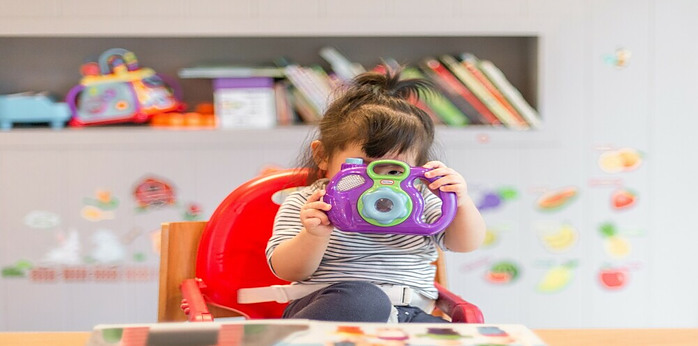I’m going to take you through an exciting phase of your baby’s life – the developmental sprint from 9 to 12 months. This period isn’t just about physical growth, it’s also about leaps in cognitive and emotional development. Your baby will start to showcase their personality, preferences, and, yes, even a budding sense of humor.
You’re going to find out about key milestones, like mastering the pincer grasp, starting to babble in a way that sounds like real conversation, and perhaps taking those exhilarating first steps. Remember, babies develop at their own pace, so if yours isn’t doing something mentioned here just yet, don’t worry too much about it.
Now, what’s crucial is knowing how to track your baby’s progress. This isn’t simply for peace of mind; it provides a roadmap to identify any areas where they may need a little extra help. And how do you foster that development? By creating a stimulating environment with lots of love, conversation, and play.
This brings us neatly to the role of nutrition in supporting your little one’s growth. A balanced diet is going to include a variety of tastes and textures appropriate for their developmental stage. In my opinion, it’s key to lay the foundation for healthy eating habits that will last a lifetime. But how exactly do you go about introducing new foods, and what should you be mindful of as you phase out bottle-feeding? I’ve got some insights to share with you in the next section, so let’s keep this journey going.

Nutrition Essentials for 9 to 12-Month-Old Babies
As your baby nears their first birthday, their nutritional needs are dynamic and diverse. Starting to eat solid foods is a big step in your baby’s development. Now, I’m going to walk you through some of the key components to keep in mind during this exciting stage.
Much of this period involves experimentation with flavors and textures. You’re going to find out about ways to smoothly introduce a wide variety of solids, ensuring your baby gets a balanced diet. From soft mashed vegetables to finger foods like small pieces of fruit, the choices can be both nutritious and fun for your little one.
Let’s address the elephant in the room: bottle-feeding versus cup drinking. By the end of this phase, your baby may be ready to start the switch from bottle to cup. Introducing a sippy cup can begin around 9 months, and I can help you with practical tips on how to make this transition easier for both you and your baby.
Of course, establishing a regular mealtime routine is golden. Predictability can help your child adjust to new foods and eating habits. Also, don’t forget about healthy snack ideas that can fit into the daily routine to maintain energy levels between meals.
Just don’t focus too much on perfection; your baby might reject new foods at first, which is entirely normal. Be patient and keep offering new tastes. You can always adjust your approach down the road if certain foods are consistently turned down.
Boosting Cognitive and Physical Growth Through Play
Between 9 to 12 months, your baby is going to be quite the explorer, turning your home into a personal discovery zone. Cognitive and physical development go hand in hand, so it’s essential to engage your little one with activities that challenge both the mind and body.
Interactive games like peek-a-boo and ‘Where’s the toy?’ help sharpen cognitive skills and understanding of object permanence. These games also teach cause and effect, which is a concept your baby is starting to grasp at this stage.
Physical activities aren’t just limited to crawling and standing. Encouraging your baby to reach for toys or stack blocks can work wonders in developing motor skills. If you want to give their gross motor abilities a boost, provide ample space for them to move around safely.
The importance of play extends beyond cognitive and motor skills; it also plays a significant role in emotional and social learning. Playing with your baby helps them learn to communicate, express themselves, and understand social cues through laughs, babbles, and the range of emotions they display.
Remember, every child is unique, and they’ll reach milestones at their own pace. Choose activities that resonate with your baby’s interests, and don’t worry too much about keeping up with any ‘standards’.

Navigating Challenges: Sleep Patterns, Teething, and Safety Concerns
As your baby reaches the 9 to 12-month mark, you’re going to notice some big changes, and along with those come a few challenges. Let’s talk about sleep patterns first. You might find your little one fighting naps or waking up at odd hours as they approach their first birthday. This can be due to development leaps, teething discomfort, or just the increased mobility that comes with being a tiny explorer. Don’t worry too much about occasional sleep disruptions, but staying consistent with bedtime routines is key.
Speaking of teething, it’s likely your baby will experience this around now, and it can be tough on both of you. They might be fussier, drool more, or even have some feeding resistance. A few proven ways to help soothe their gums include offering safe teething toys, cold washcloths to chew on, or even massaging the gums gently if your baby seems to like that.
And finally, safety concerns. Once your baby starts crawling or taking those first tentative steps, your home becomes a grand adventure with pitfalls they can’t yet understand. It’s time to double-check your baby-proofing. Make sure cleaning supplies and medicines are secured away, protective gates are installed, and sharp corners are covered. Keeping your curious adventurer safe is your new top priority.
Throughout this vibrant period of growth, remember that your baby is unique, and milestones may be reached at their own pace. Encourage and support them, adjust your approach as needed, and, above all, enjoy the journey with your little one. Choose methods and routines that resonate with you and your baby, and reach out to your pediatrician if you have concerns. Cheers to these formative, exciting months ahead!



